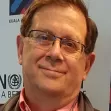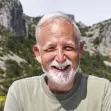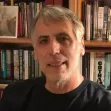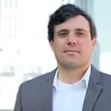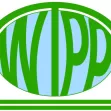Energy
Green Dream Put to the Test
Boulder Colorado has tried peer pressure, free weatherization services, and intense publicity, but so far, voluntary efforts to increase energy efficiency have yielded mediocre results.
Cities Prepare for Electric Cars
San Francisco, Portland, and San Diego lead the charge to ensure everything from power grids to building codes are prepared for arrival of electric cars.
Government Plans Vertical Garden on Portland Skyscraper
As part of a $133 million renovation of a federal building in Portland, the Government Services Administration plans to add 200-foot high "vegetated fins" that will carpet the building with plants and - hopefully - energy savings.
Portland Learning from Los Angeles
An interdisciplinary team of urban designers, architects, and analysts have proposed a neo-retro-futurist scenario for making downtown Portland nearly car-free by 2050.
Win-Win Transportation Emission Reduction Strategies: Good News for Copenhagen
Here is good news for anybody looking for smart ways to reduce climate change. "Win-Win" transportation emission reduction strategies can provide substantial energy conservation and emission reductions in ways that also help achieve economic and social objectives.
Kunstler: Rebuild the Passenger Rail System
In his forward to James McCommons' new book, Waiting on a Train: The Embattled Future of Passenger Rail Service, James Howard Kunstler lays out the case for investing in a revival of passenger rail.
CA Cities Switching to LED Lighting
Following the success of programs in L.A. and San Francisco, more cities in California are making the switch to LED lights to save on energy costs and provide more sustainable street lighting.
Food and Urban Form
Carolyn Steel gives a talk inspired by her new book "Hungry Cities," about the history of feeding urban areas, and the ways in which food might reach increasingly urban populations in the future.
A Low Cost Way to Learn About the Future of China
During my first week in China, I have spoken to dozens of people and toured all over Beijing. I even have a map listing the locations of all of the McDonalds in Beijing. Spatial theorists need to write down a model to explain how a uniform distribution of McDonalds is what we observe. While I am quite happy to be here, this is not a low cost trip. The flight over was literally a pain in the neck. I'm in trouble with my wife
How Much Green for the 'Green'?
As attention to energy efficiency and climate change continue to pervade the thinking and planning of the future transportation system, we are increasingly challenged to make very real decisions about the prudence of various investments. The current context for decision-making offers perhaps the greatest uncertainty regarding the future witnessed in the lifetimes of people in the planning profession today.
The "Greenest" Consumers
Consumers in India, Brazil, and China scored the highest (and those in the U.S. the lowest) in a survey conducted by National Geographic and Globescan for green behavior.
Making Cities Net Producers of Energy
Professor David Godschalk, City and Regional Planning, University of North Carolina -Chapel Hill, discussed the need to initiate 'positive development' strategies in cities during a National Building Museum symposium.
A Whole New World
Sara Robinson of the Campaign for America's Future outlines in the first of a series of articles why we simply won't be able to "return to normal."
Predicting the Future of U.S. Suburbs
No drastic changes will occur in American suburbs over the next quarter century, Columbia University professor contends.
A Major Step Toward An Ambitious Energy Goal
The City of Austin is set to take in a record amount of solar power to advance towards a goal of deriving 30% of local energy from renewable sources by 2020.
The Tortoise and the Glare
Plans to scrape hundreds of thousands of acres of the Mojave Desert for solar panel installations may endanger wildlife and are pitting environmentalists against each other.
Affordable And Efficient Communities for 2013
Just getting started here, so I hope you’ll give me time to set my voice and you will tune in to provide a thoughtful dialogue. Like many of you, I am an urban planner with a distinguished background. My current emphasis is on new community development that will begin to emerge in the United States by 2013. Over the past two years, I was lucky enough to have a patron who sent me all over the world to see and record the best places, and meet with experts in energy efficiency, health care delivery, workplace transformation, learning and transportation demand reduction.
Coal Ash Dumps Unregulated, Pose Health Risks
The catastrophic spill of coal ash sludge in Tennessee is a wake-up call: there are more than 1,300 such dumps across the U.S., and, as a result of coal industry lobbying, no federal regulations for safe storage, reuse or disposal of the waste.
Getting Off Oil Without the 'C' Word
Amory Lovins, co-founder and chairman of Rocky Mountain Institute, believes that governments and the private sector need to identify and remove barriers to energy efficiency, rather than simply promoting "conservation."
From a Zombie Economy to a New Economy
The stream of Washington bailouts is a doomed attempt to revive a 'zombie economy', argues James Howard Kunstler. He believes we need to start organizing new, local economies built around growing food, making things and transporting them by rail.
Pagination
City of Costa Mesa
Licking County
Barrett Planning Group LLC
HUD's Office of Policy Development and Research
Mpact Transit + Community
HUD's Office of Policy Development and Research
City of Universal City TX
ULI Northwest Arkansas
Town of Zionsville
Urban Design for Planners 1: Software Tools
This six-course series explores essential urban design concepts using open source software and equips planners with the tools they need to participate fully in the urban design process.
Planning for Universal Design
Learn the tools for implementing Universal Design in planning regulations.



















